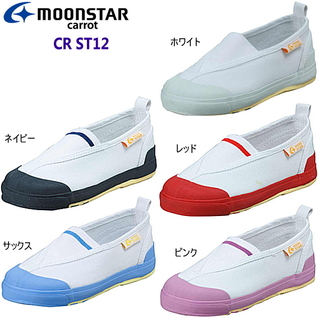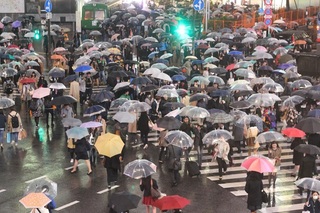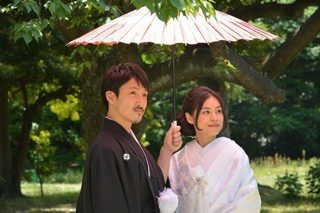インバウンド資料
Uwabaki
Bring Umbrella !
No Soy Sauce on Rice !
2017 Version
2012 Version
2009 Version
Uwabaki
Please tell the bands coming to Japan to bring their own "uwabaki (shoes only for indoor)" for performance. Otherwise they will sometimes be asked to perform with slippers on or only with socks on.
*** qte from wikipedia ***
Uwabaki, are a type of Japanese slippers worn indoors at home, school or certain companies and public buildings where street shoes are prohibited.
Japanese culture mandates that people should remove their shoes when entering homes and other buildings, especially where the floors may have rugs, polished wood floors, or tatami (grass mats). Uwabaki are light, flexible shoes which are easy to slip on and off, designated for indoor use. As they are not generally worn outside, the soles are kept clean, and thus cleaning and maintenance of the building's floors are kept to a minimum.
At the entrance of every school, from preschool to college, there is an assigned locker for each student to put his or her uwabaki. A student's grade level is often indicated by a colored stripe across the toes; the body color of the slipper is always white.
*** unqte ***
Japanese Culture: Why Should You Remove Your Shoes?
July 16th, 2020
Recently hygiene has been a highly discussed topic all around the world in the wake of COVID-19. Things like washing one's hands and wearing a mask have been in the spotlight more than ever before. But when it comes to hygiene in cultures in general, Japan is well-known for various practices that might surprise.
If you've visited Japan, been in a Japanese home, or establishment, you may have noticed the custom of taking off shoes before entering. This is a custom practiced in Japanese homes, accommodations, restaurants, temples, and even some hospitals and hotels. Removing your shoes indoors is a deeply rooted custom of Japanese culture, but why is this? Let's dive into this custom of hygiene, which is only one of such well-practiced customs in Japan.
Respect in Japanese Culture
Japanese culture is a unique aspect of the country, and like most places, has its own history and customs. This can be seen in the importance placed on social behavior. No matter how technologically advanced this country has become, some of its main customs, including taking off your shoes at the door is still very much in use.
Taking off your shoes at the door shows you have respect for the place you are entering. Whether it is a home, a hotel, a restaurant, an inn, or even a hospital, taking off your shoes when you see a tatami mat near the door is necessary. This shows your respect for the place you are entering and also clearly delineates the outside and inside.
Cleanliness in Japanese culture
It is a great honor to be invited into the home of a Japanese person. People in Japan hold cleanliness in high regard, taking great care in keeping an immaculate home. This means that their home should not be soiled by the dirt on your shoes. So it is customary to take off your shoes and usually wear the provided slippers.
In more informal situations, you may just walk around in socks, like in a Japanese home. In places of business, it's more than likely to have slippers provided to you to feel comfortable and provide more of a formal atmosphere.
Respect your feet
Shoes, especially Western-style shoes, can be very restrictive to the feet. The practice of removing your shoes inside a home on one level is simply an act of respecting and nurturing your feet. Particularly at places of relaxation, like inns, hotels, and spas in Japan, you'll find the practice in keeping with the atmosphere, allowing your feet to become more comfortable and free.
Japanese temples
When it comes to Japanese temples and shrines, you can imagine this rule is strictly enforced when holding an event inside one of these unique venues. As of now, live events with a large number of attendees are avoided because of the situation surrounding COVID-19. However, it is something to keep in mind for the near future when travel to Japan becomes possible again, or when you are looking into holding an event at a Japanese temple. A place of worship is sacred in Japan, so taking your shoes off before entering is imperative. When you enter any Japanese temple, you'll find shelves by the doors for leaving your footwear, or tote bags for you to carry your shoes with you.
Per Japanese culture and tradition, it is not uncommon to have an event held at a temple, a shrine or even a historical site. If this is the case, the customary thing to do is leave your shoes at the door and walk inside with socks or slippers if they are provided. As a visitor who is not accustomed to this practice, you may feel strange walking around shoe-less at a formal corporate event, but just remember that it is a sign of utmost respect to do this, and will be appreciated by others around you. Also, you need not worry about losing your shoes, or having them mixed up with someone else's as our event management team will make sure that your shoes are well kept and returned to you when exiting the venue. In some cases, it is even possible to keep your shoes on, with special shoes covers provided to walk on inside the venue.
Bring an umbrella, not a raincoat or poncho but umbrella with you for the tour in June or July. Raincoats or poncho will make the coach seat wet and the room air gets uncomfortable. Sometimes students in the coach get sick. Please bring an UMBRELLA.
WE'VE GOT IT COVERED: UMBRELLA CULTURE IN JAPAN
No Soy Sauce on Rice !
No soy sauce on rice !
50 reasons why Tokyo is the world's great city
2017 Version
50 reasons why Tokyo is the greatest city in the world
2012 Version
50 reasons why Tokyo is the greatest city in the world
2009 Version
東京が世界一魅力的な都市である 50 の理由 | CNNGo.com
50 reasons why Tokyo is the greatest city in the world | CNNGo.com



